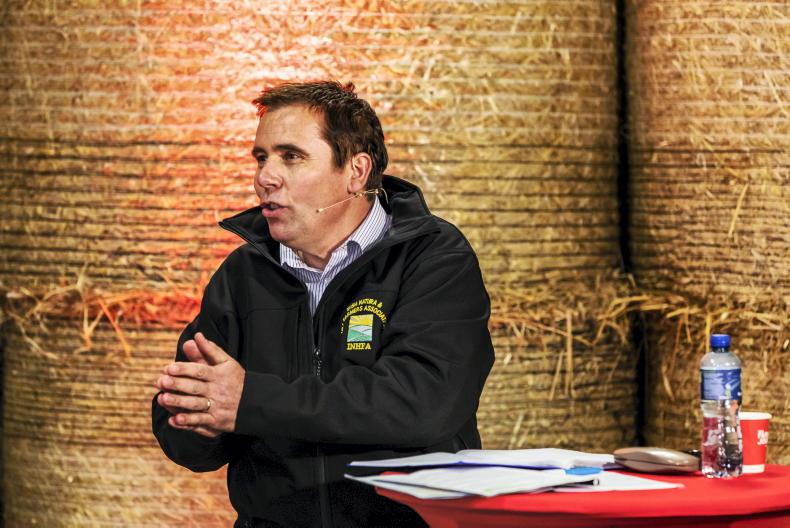The Irish Natura and Hill Farmers Association (INHFA) has called on the Government to deliver a €300/ha payment for farmers with designated land.
In its pre-budget submission, it outlined that since the introduction of land designations, such as Special Areas of Conservation (SAC), farmers on these lands have experienced a curtailment in output, an increase in costs and the loss of potential earnings.
It added that there has been an erosion in designated land payments under agri-environment schemes, with no payment at all in the new Agri Climate Rural Environment Scheme (ACRES).
Farmers were paid €242/ha under REPS, while they received €150/ha under AEOS and €79/ha under GLAS.
It called for the immediate establishment of a fund for all private landowners with designated lands to deliver a €300/ha payment for every hectare of designated land, and a fund to compensate landowners who are selling designated lands. It said it would need a budget of €300m/year to deliver the scheme.
The INHFA said that there is a “real concern” for sheep farmer incomes this year and called for a €35/ewe payment to support farmers, on top of the €12/head payment in the Sheep Welfare Scheme. This scheme would cost around €85m, it said.
The hill farmer body warned that farmers are potentially facing a financial crisis this year due to the new scheme payment dates, which will push the Areas of Natural Constraint (ANC) payment back by a month.
“If payment dates were changed in any other sector as they are here, there would be uproar,” it warned.
It said there is also potential that some farmers could get to the end of October unpaid as a result of possible IT errors or demands from Europe around inspections.
To combat any potential impact, it is calling for a family farm payment to be established to protect cashflow, similar to that of the COVID-19 supports to ensure farmers are paid.
Any such payment would be taxable and if the payments come on time this autumn then these farmers will need to plan on paying most or all of it back in 2024.






 This is a subscriber-only article
This is a subscriber-only article










SHARING OPTIONS: